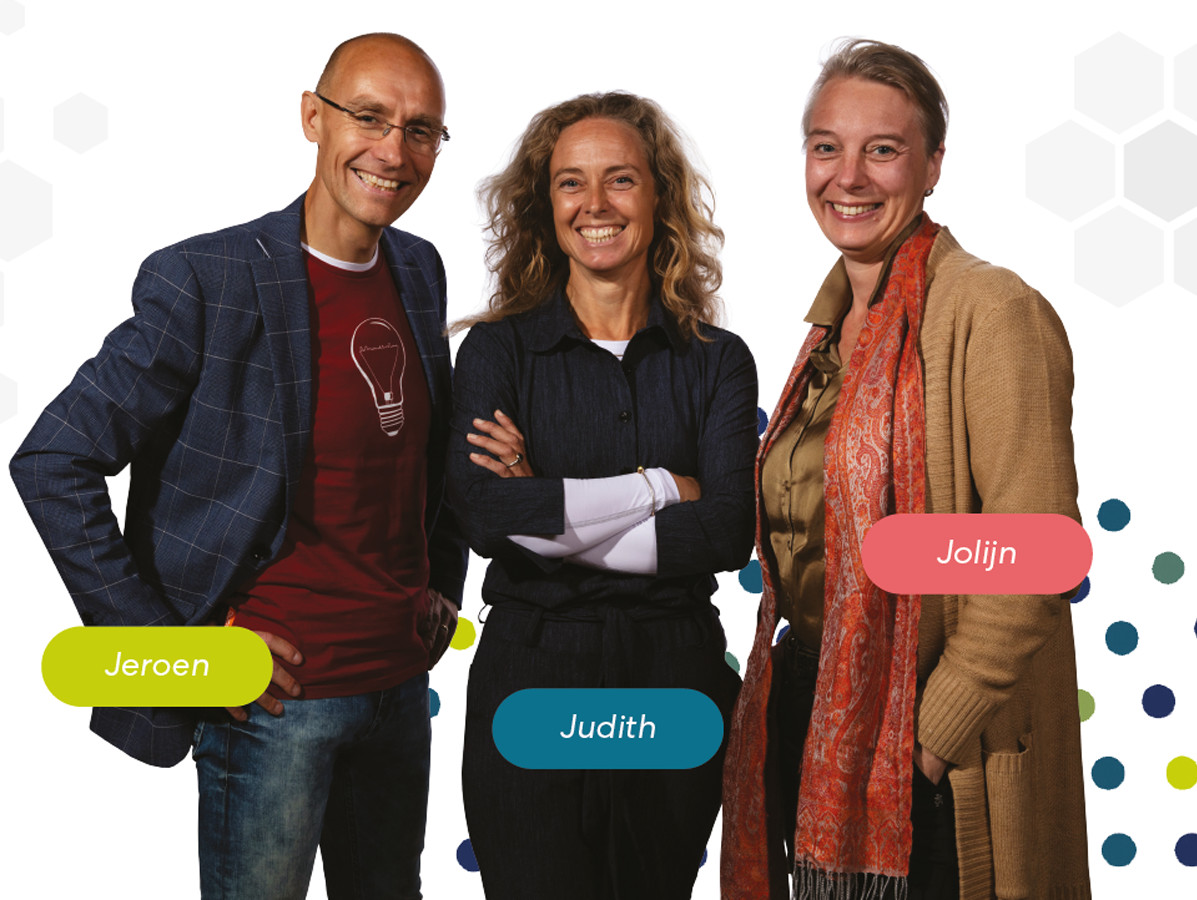
The aim is to get healthy, sustainable and efficiently produced food on our plates. Our experts identify promising opportunities at an early stage, with their sights set on 2050, but with application possibilities for today. To do so, they work together with frontrunners.
This is not just a matter of a new product or processing process. It is about putting the pieces of the puzzle of the future in the right place. Together, we create ideas for a more efficient, healthy and sustainable food system.
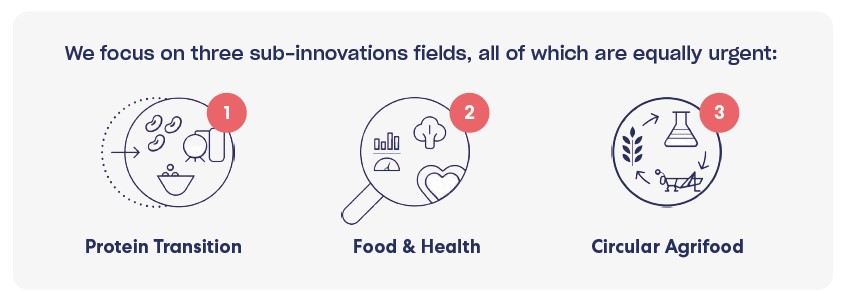
Each domain has an Innovation lead, who, with a team of experts around them, delves into the relevant themes around that subfield. On this page, the three Innovation leads Jolijn Zwart-van Kessel, Jeroen Willems and Judith van der Horst - Graat answer the questions: Which developments should we respond to now? And how are they, as Innovation leads, actually working on this themselves? What fuels their motivation?
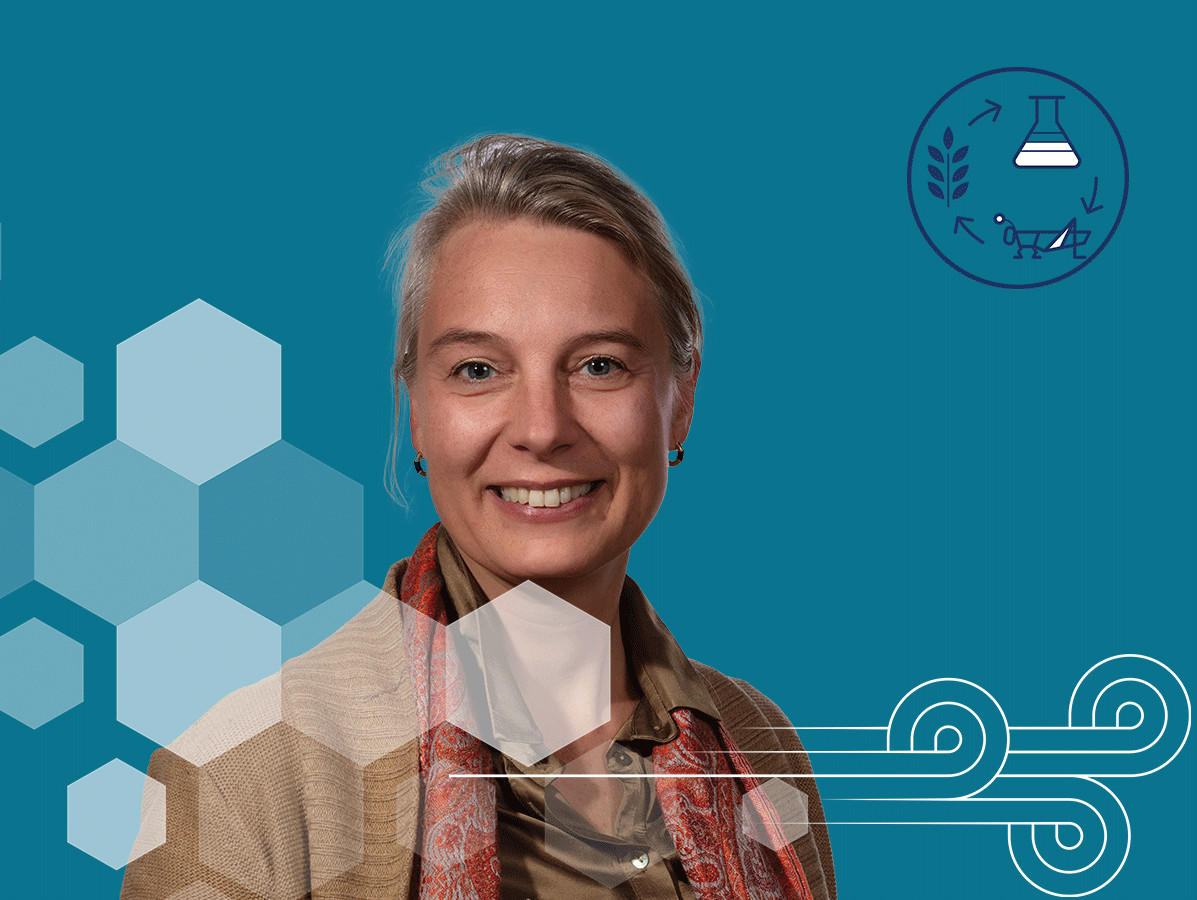
Which developments should we respond to now?
"Raw materials are becoming scarcer, commodity prices are rising. So it’s time to use our resources more efficiently and effectively, by reusing and upgrading residual flows, for example.
In this way we can create valuable nutrients. In the Upcycling Community, we bring together partners from different chains who are looking for optimal processing solutions.
Besides pigs and chickens, insects are good and sustainable upcyclers. If this market grows, the sector will have more room for innovation. And this in turn is necessary for a transformation to a mainstream market.
Another point is that agriculture in Europe is under pressure. Farmers need to produce more sustainably and focus on
nature-inclusive practices, while delivering the same yields in tonnages.
A solution to this dilemma may lie with regenerative agriculture. Finding a business model with a long-term perspective is a task for the whole chain, from farmer to retailer."
How are you yourself involved in this, and what is your drive in doing so?
"I myself come from a farming family business, so it’s an area I am familiar with. I want to build a bridge between corporate ambitions and the farmer's perspective.
My drive is to find an economically and ecologically sustainable solution together that helps both parties in the chain move forward.
My drive also lies using insects as upcyclers. Encouraging cooperation and a market scan can help with that, which I will explain in detail in another article of this special.
Cooperation by offering insight, that's how I build bridges!"
Foodvalley NL is currently exploring ways to accelerate the uptake of waste streams in food production. If you are interested, please contact Jolijn Zwart-van Kessel
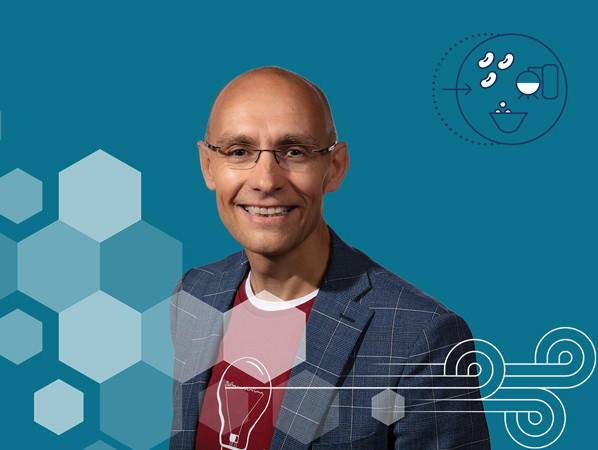
What developments should we respond to now?
"The restoration of the protein balance – returning to a food pattern with more vegetable than animal proteins – is in full swing. Time to shift gears now and link consumption to production. Local production of plant proteins means becoming more self-sufficient again.
The cultivation, processing and consumption of regional proteins, such as from field beans, soy, lupin or chickpeas, are interlinked. That is why Foodvalley took the initiative for the national Bean Deal, involving all the partners in the chain.
An important focus here is on farmers who grow proteins, the 'protein farmers of the Netherlands'. For them, the financial risks of growing leguminous crops are still very high. They deserve our full appreciation and support.
The Bean Deal helps them with these risks, for instance by making the possibilities of vegetable protein from their own soil clear to consumers, retailers and governments – for the soil, the farmer and the citizen.”
How are you yourself involved in this, and what is your drive in doing so?
"I shine a different light on protein transition by providing insight into the opportunities it offers and cashing in on them.
For example, by analysing consumer trends together with our partners, or investigating how sales channels react to new food trends. And converting these possibilities into concrete opportunities and picking them up together with partners.
This can be done by helping entrepreneurs one-on-one, but also by working with several entrepreneurs together.
An example of this is our fact-finding mission in Germany for food entrepreneurs with export ambitions.
It's great to work together with Dutch game changers on this transition - to show them that it can be done and how to do it."
If you have a good idea, let us know! Get in touch with Jeroen Willemsen.
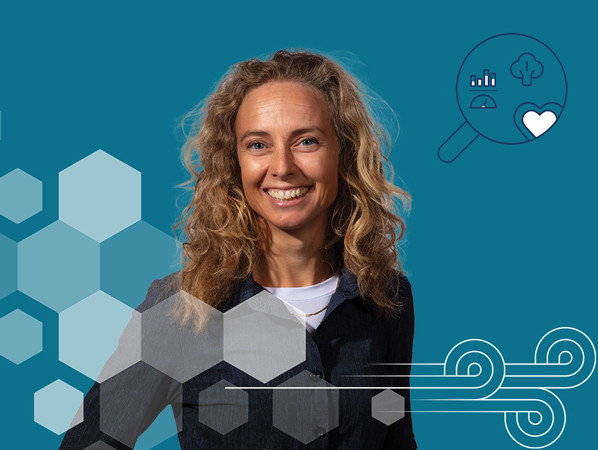
Which developments should we respond to now?
“Digitalisation! We focus on finding new solutions and tools to monitor and improve an individual's health so that people receive better guidance and support in making healthy choices. By accelerating innovations in personalised nutrition advice, we aim to contribute to a healthier and more equitable food system. An individual can collect data themselves by measuring values in saliva, urine or blood, but also more simply by filling in information about their lifestyle in a short questionnaire. These data are converted into customised advice via an algorithm. By means of personalised nutritional advice, it may be possible to reduce complex problems such as obesity and malnutrition. And consumers can take control of their own health!"
How are you personally involved in this and what is your drive in doing so?
“I bring the pioneers from the personalised nutrition ecosystem together in a Community. Together with these pioneers, we enable upscaling by launching concrete initiatives. We explore all areas – from data and IT infrastructure, profitable business models to the legal framework. Together with 53 stakeholders, we wrote the 'Personalised Nutrition position paper' where we developed, among other things, an ecosystem-based definition of personalised nutrition. The paper bridged knowledge gaps and was the foundation of a common language.
It’s great to be able to make a positive difference together with all stakeholders in the way we provide nutrition and information on nutrition."
Are you interested in making the healthy choice the easy choice? Contact Judith van der Horst.

What does it mean for a partner to be part of a Foodvalley community?
The partners associated with Foodvalley support each other, challenge each other and connect in Communities.
Judith: "You will participate in networking and 'meet the new partner' meetings, awareness and acceleration sessions, workshops, trend trips and so on. You learn to understand the perspective, language and stakes of the others."
Jolijn: "You find people with the same ambition. A lot of new connections arise because you get in touch with each other here in a low-threshold way. A few months after the meet-ups, very often - thanks to the new collaborations - beautiful innovations pop up."
Jeroen: "You are heard and taken seriously here. You get the energy to continue where others stop, the knowledge to turn your ideas into concrete products. Not infrequently, our partners have to take a quantum leap, working together to form the critical mass needed for change."
Source: Foto's: ©James Media